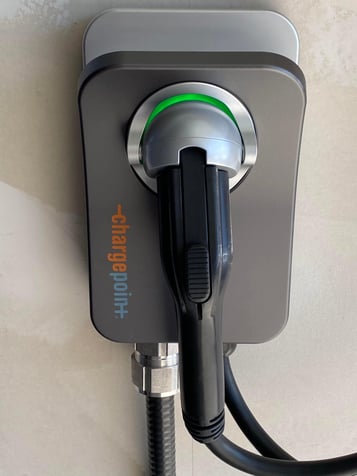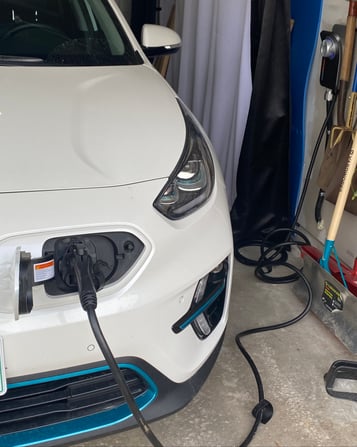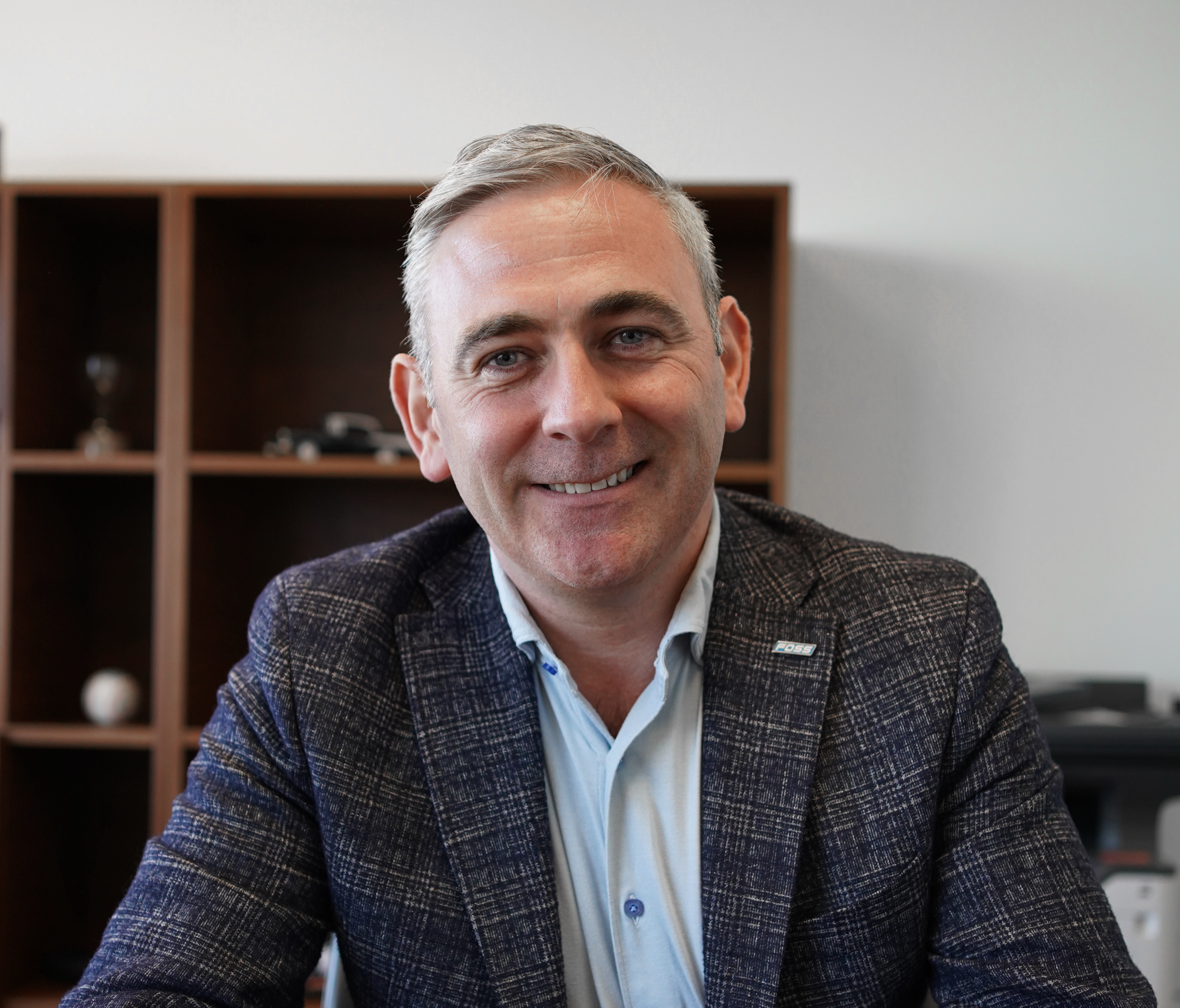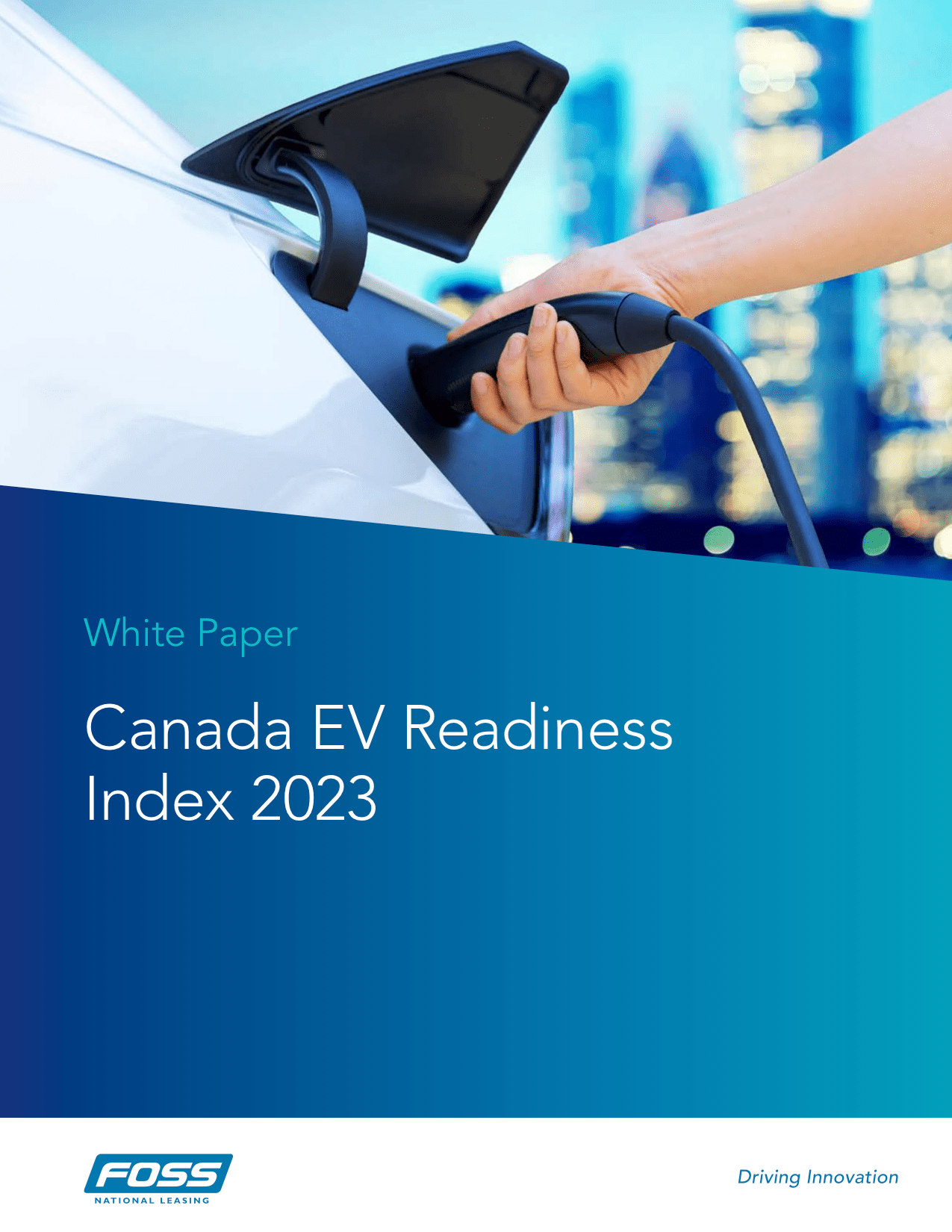Our EV Pilot Program is designed to tackle the uncertainties that arise with electric vehicle (EV) adoption in fleet management. We're integrating EVs into our company fleet to gather valuable operational data for our clients. Our ultimate objective is to collect as much data as possible to assist our clients during the transition process.
Introduction
We've been conducting a pilot program since 2022, which evaluates vehicles suitable for sales or executive fleets. 15% of our company car drivers are participating in this program, using a mix of battery-electric and plug-in hybrid electric vehicles.
We recently caught up with Jennifer Chapman, the Central-Regional Director of Sales and Client Services participating in the EV pilot program, and Michael Daniel, an Account Executive taking part in the program, to learn about their progress and accomplishments after a year of running the program.
.png?width=600&height=400&name=Untitled%20design%20(4).png)
Key Milestones of the EV Pilot Program
Jennifer: We have accomplished a significant milestone by selling our first vehicle through an auction. We are studying the data to determine how this sale has affected the total cost of ownership (TCO). A TCO assessment usually involves analyzing three years of data, so we must factor that into our calculations and continue running the EV Pilot Program for a few more years to gather comprehensive information. Although the first year was just the initial phase, we can already provide valuable insights about the vehicle's suitability and share driver feedback.
Performance And Reliability Of Electric Vehicles
Michael: As an account executive at Foss, my main task is to acquire new clients and maintain a good relationship with existing ones. I regularly visit clients and meet new prospects. Since I got my electric vehicle, it has been a game-changer for me. I no longer have to stop for fuel and save a lot of time.
I recently travelled from Montreal to Toronto to visit a client, and I used my Tesla Model 3 for the road trip. Initially, I was concerned about how much time I would need to charge, but it was unnecessary. The charging only took approximately 20 minutes, and I used that time to grab a quick bite. Realistically the car can travel up to 350 km. Charging at rapid chargers costs me around $40 to $50, which is still cheaper than fueling any other vehicle.
Overall, I'm happy to drive an electric vehicle. However, its benefits depend on your driving habits and work demands. If you frequently travel long distances, charging may slow you down. But for daily use and driving up to 200-300 km, owning an electric vehicle is cost-effective compared to gasoline.
Jennifer: I never want to drive a gas-powered vehicle again. [Laughs]
Total Cost of Ownership (TCO)
Jennifer: We have yet to be able to run the full total cost of ownership data, as it typically requires three years of data, and we only have one year so far. However, we have noticed a significant decrease in fuel costs. We are also factoring in the cost of installing the charging station and the necessary infrastructure, as they are part of our total cost of ownership.
Michael: Indeed, we don't have all the data, but from my experience, I can attest to the significant decrease in fuel costs. I only charge around $40 to $45 per month at home, which is a huge savings compared to the $400 to $500 I used to spend on fuel for my traditional car. To keep track of charging costs, I use a car calculation app to view the price by month or year. Last year, I only spent $423 on charging my vehicle.
Another advantage is that electric vehicles require minimal maintenance. I only need to switch out my tires for winter and summer and check the brakes every few years.
Thanks to government grants, purchasing one is also quite affordable. The government incentives vary by province. Download the latest Canadian EV Readiness Report for details.
Charging infrastructure

Jennifer: Our company installs and pays for the chargers at employees' homes. If an employee needs to upgrade their electrical panel to accommodate the charger, the employee will be responsible for covering the cost of the upgrade.
We rely on suppliers to handle the installation process. We provide them with a detailed questionnaire and photos of our employees' homes and electrical panels. Based on that, they can offer a quote, send their team, and install the charger without any issues. It is incredibly effortless.
Challenges And Lessons Learned So Far
Jennifer: The lesson we learned is that it's crucial to keep our fleet policy up to date regarding charging fees for both customers and drivers at home. For instance, when my home charger broke, even though it was under warranty, there was an additional cost for an installer and electrician to remove and reinstall it. Therefore, it's essential to ensure that our policy covers the charger installation and the charging station's maintenance.
Future Plans

Jennifer: Our team has been working on expanding our pilot program and gathering more data. As part of this effort, we plan to roll out this initiative to more drivers gradually. This will enable us to collect even more valuable insights and make informed conclusions about the electric fleets.
This approach will allow us to maintain a high level of data quality and reliability of the results to consult our clients on the transition to EVs comprehensively.
Conclusion
To sum it up, the Foss EV Pilot Program has effectively met its objective of gathering data and validating several assumptions regarding electric fleets. Stay updated on the program's progress, and let us know if you need assistance and support in structuring the transition to EVs.
Get to Know the Author
Basil Marcus is the president of Foss National Leasing and LeasePlan Canada. With a lifelong passion for automotive, he journeyed from business development to leading one of Canada's top fleet management companies.
Meet our team






